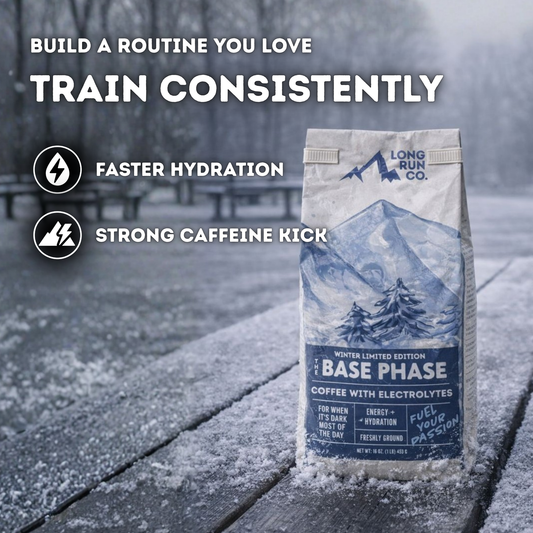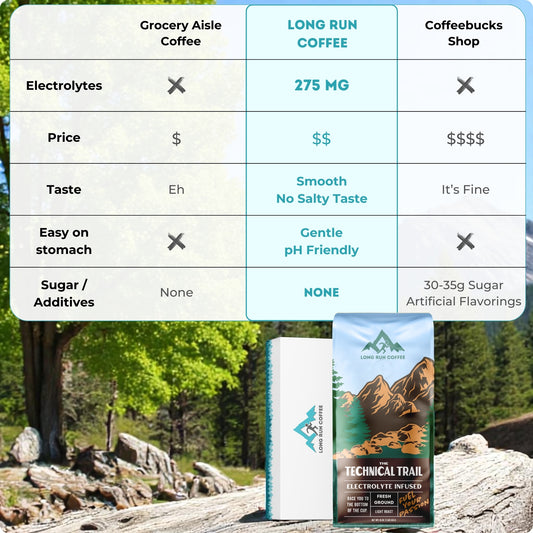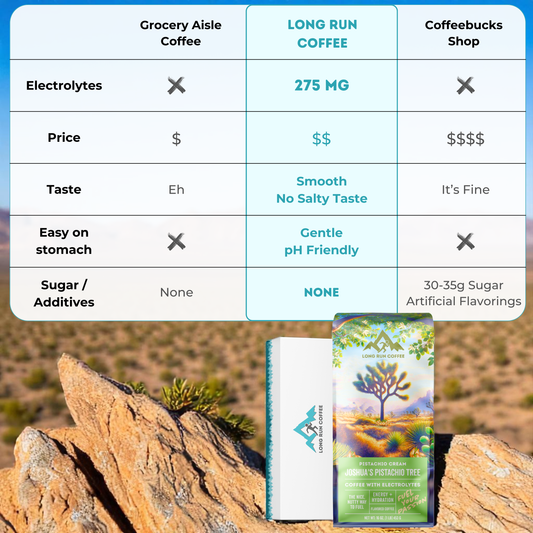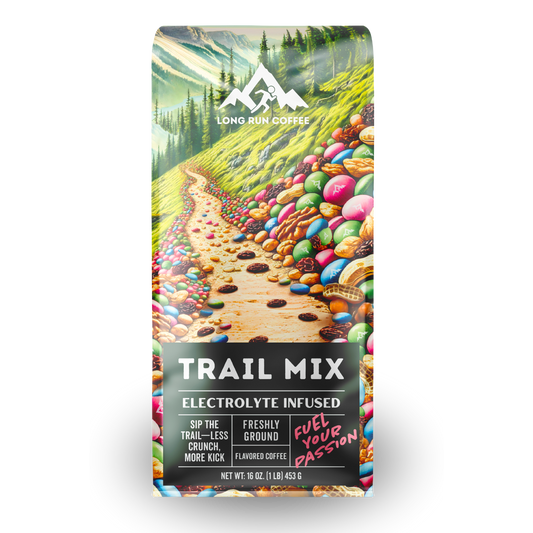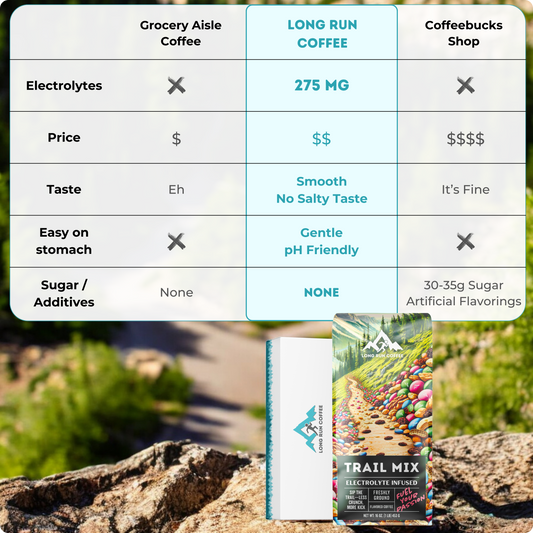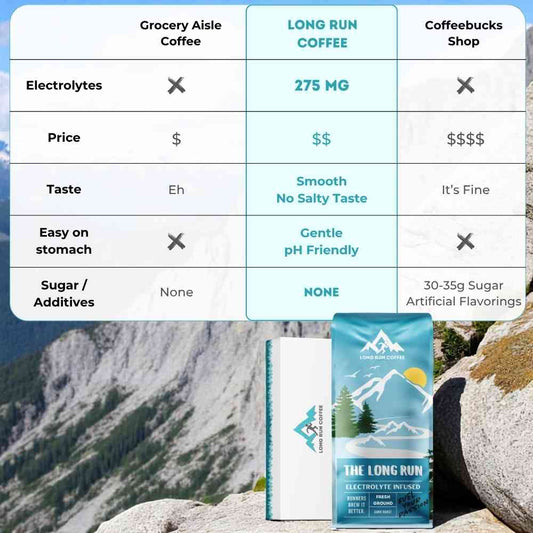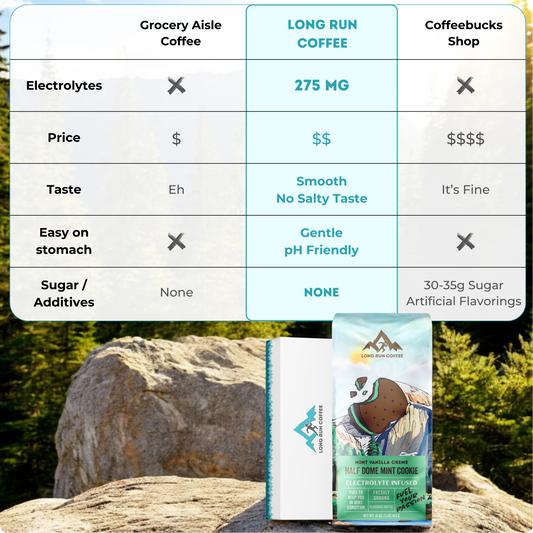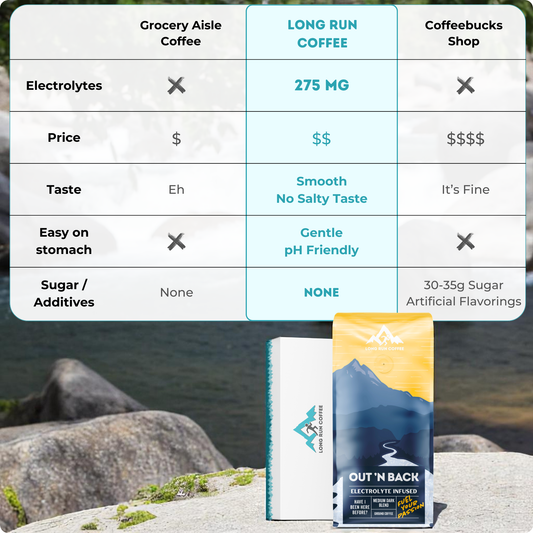
Change Your Default
2 Minute Read
Progress comes from changing what “normal” looks like.
Why Defaults Matter for Every Athlete
Every athlete operates from a default.
Think about the patterns we return to automatically, even when motivation is low or life gets busy. Do we run every day? What does the milage look like? What do we skip? Our default determines our long-term progress far more than any peak effort ever will.
For newer runners, the default might be whether running happens at all. For more experienced athletes, the default evolves: weekly mileage, strength sessions, recovery structure, nutrition habits, or the ability to maintain consistency during chaotic weeks.
The point is that your default is the honest measure of where you are. And the moment it improves, everything else improves with it.
A stronger default builds a stronger athlete.
The Real Progress Happens in the Baseline
Most athletes (especially early on) think progress comes from intensity. Faster paces, harder workouts, heavier lifts. But the athletes who grow the most over time are the ones who improve the average day, not the exceptional one.
For a newer athlete, raising the default might be running consistently three days per week instead of sporadically.
For a seasoned athlete, it might be moving from inconsistent strength training to a reliable weekly routine, or increasing total mileage from “when time allows” to a predictable baseline that doesn’t depend on motivation.
This is how growth works at every level. We don’t get better by pushing harder occasionally. We get better by raising what we do automatically. Even when the day isn’t special.
Defaults Reduce Friction
Friction is the enemy of consistency.
Friction shows up as a mental debate. For newer athletes, it’s “Should I run today?” But experienced athletes face friction too. It just looks different: “Do I really need the strength session?” “Can I skip strides today?” “Maybe I’ll bump the long run to tomorrow.” It's tiny negotiations that slowly lower our standard. And it happens at every level.
A durable default removes that friction. It replaces decision-making with routine. When strength work is normal, we do it without drama. When higher mileage is normal, we don’t have to hype ourselves up to do the long run. When recovery is normal, we don’t need motivation to protect it.
This is how systems are built. Not through willpower, but through familiarity.
The Next Level Requires a New Normal
Every breakthrough is preceded by a shift in what we consider normal. Goals don’t demand heroic effort. They demand an upgraded baseline.
-
If we want stronger endurance, a higher weekly mileage must become normal.
-
If we want faster times, structured threshold work must become normal.
-
If we want fewer injuries, consistent strength and recovery must become normal.
These aren’t dramatic changes. They’re small shifts in default behavior.
And they compound faster than anything else in training. When our default improves, progress stops being something we chase and starts being something that happens naturally.
Identity Evolves When Default Evolves
Changing our default isn’t just a behavioral shift. It’s identity work.
When we consistently hit our new baseline we start to see ourselves differently. Strength work becomes something we do, not something we negotiate. Higher mileage becomes part of who we are, not something we aspire to. Recovery becomes discipline, not indulgence.
Identity follows repetition. And repetition follows default.
This is why elite athletes feel so unshakeable. Their default is strong enough to hold through stress, chaos, and life’s disruptions. The real difference isn't talent or motivation, but the baseline they’ve built over years.
Wrap It Up
Nothing changes until our defaults change.
Big leaps don’t come from intensity. They come from raising what we do on ordinary days. Every time we upgrade our baseline, we upgrade the athlete we’re becoming.
Raise the default. Raise the floor. Raise the standard.
With this mindset, we build a routine we love and train consistently.






